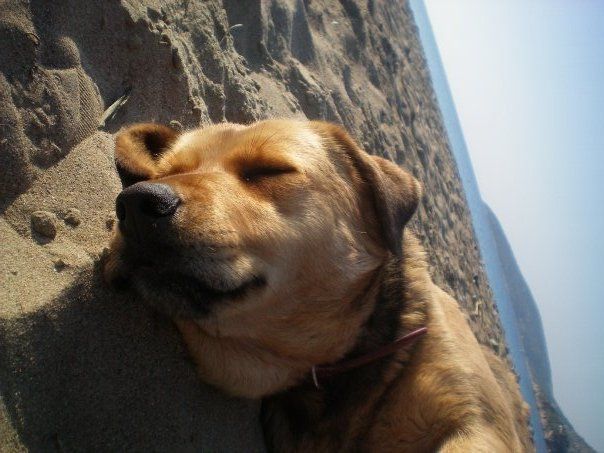As I awake with my legs blanketed in warm sand, anticipating my appointment with a Greek sunrise, a Mediterranean breeze enraptures my senses. Bitter air it is not. It wafts, venting histories passed into my nostrils, inflating my lungs with the rich triumphs of centuries dead. It was as if Athena, the metropolis’ patron goddess, was imparting her timeless wisdom upon me, an adoring supplicant. I surely needed that wisdom, as I had just slumbered on a beach in Tolo, Greece with two feral dogs that were now slobbering on my face.
Kalimera. Good morning. This was the morning after.
No, my prior escapades were not a result of drinking readily available Greek beers. However, I was intoxicated throughout my trip, for gaunt vestibules and corroded steps led me to ancient spirits among the ruins. The notion of basking in the glorious works of dead philosophers, artists, and architects was enough motivation to send my Latin class and me on a twelve hour flight to Greece, that ancient abyss of convoluted time. I wanted to see the skeletal temples and tombs, read the morbid epitaphs, stir the soil that Plato once trod on his way to orate The Apology of Socrates. My interest in the entire country was academic, verging on macabre.
My fingers trailed along the jagged notches, embedding my young skin within eroded boulders that formed the acropolis’ walls. These walls were Mycenae’s last enduring defense against the modern world. They had failed in 468 BC and have been crumbling ever since. Our tour group besieged the great citadel like warriors of old, robbing the sloping hills of all the mystery they once held, searching for knowledge amidst the flowery weeds and bumble bees overtaking the city. But it was peaceful there. The persistent hum of bees reverberated through the mounts, reminding intruders that despite the death surrounding Mycenae’s Tomb of Clytemnestra thriving life still prevails.
I envisioned the phantoms of each scantily clad contender loping across the stretch in a flurry of dust. As the dust dissipated, I found it fitting that it was at the original Olympic stadium that I would witness the competition between Greece’s past and present, life and death. Young, spry tourists sprinted across Ancient Olympia’s stadium, to usurp the laurel-wreathed glory of their predecessors. This clash was even more evident in the gift shop clerks, who were straddling ancient and modern Greece. I looked into their sunken eyes as the peddled discus-throwing figurines. They were selling relics so that they could afford their own futures. Could the future of Greece contend with its long venerated past?
The spectacular ruins in Athens were not just ornate Corinthian columns at the Acropolis, but decade-old craters in the pavement that demanded my attention with each stumble they caused me. Those markers indicated that life in Greece continues though The Golden Age has ended. A darker age had begun, as the city seems coated in sheet of dirt. The air is not gusty and dewy, but drifting and tart. Anarchy symbol graffiti and peeling ‘YES, YES, YES! to safe sex’ posters are the décor of this city. Old men in closed restaurants looked pensively into hands of cards long past midnight. African illegal immigrants run into the night, knock-off purses in tow. Couples cling to each in clandestine alleyways. This was not a pretty city, yet it was vibrant, filled with dark stains of vitality. As student tourists, we had deified death, only to ignore the life surging around us. It took visiting Athena, goddess of knowledge, in her own city to realize that.
Dear Reader: This page may contain affiliate links which may earn a commission if you click through and make a purchase. Our independent journalism is not influenced by any advertiser or commercial initiative unless it is clearly marked as sponsored content. As travel products change, please be sure to reconfirm all details and stay up to date with current events to ensure a safe and successful trip.

1 Reply to “Anachronistic Athens”